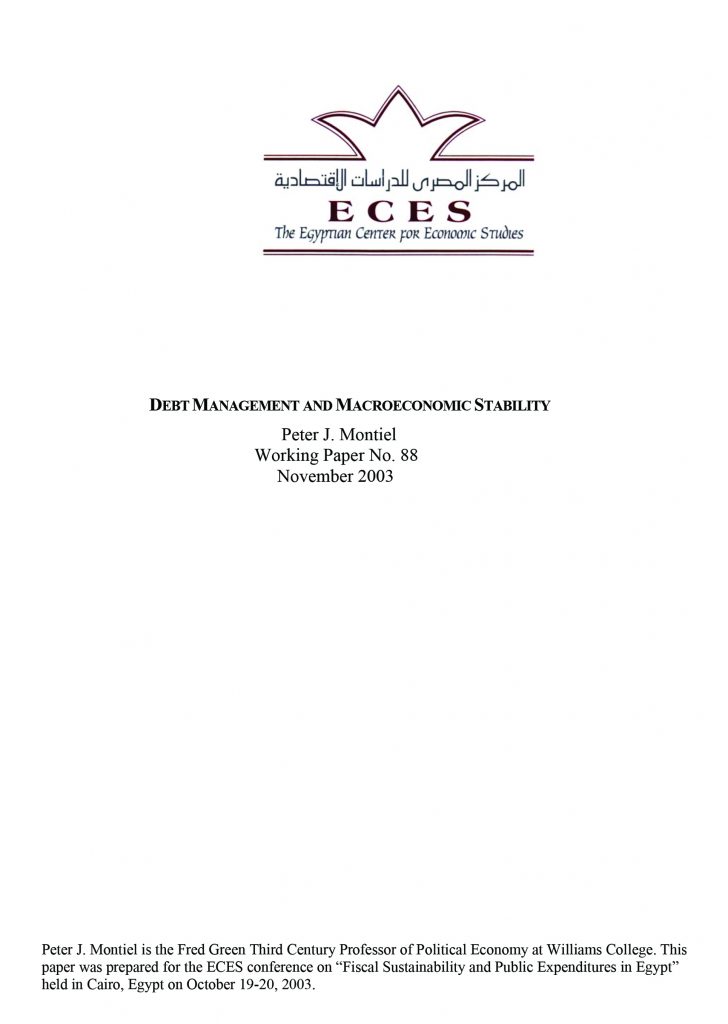Abstract:
This paper provides an overview of the channels through which the structure of public debt can affect macroeconomic performance. Its objective is to provide an analysis of factors influencing the optimal composition of the public debt, and to establish some general guidelines for public debt management in emerging economies.
The paper offers several principles for managing public debt based on theory and a study of the Mexican experience. It points out that the optimal composition of the government’s debt depends on a country’s circumstances, because the choice of public debt composition often involves making a tradeoff between enhancing the government’s credibility and reducing the vulnerability of its budget to a variety of shocks. The study concludes that while governments should generally finance themselves at market rates using a variety of securities, the optimal composition of those securities should be heavily weighted toward long-term nominal debt for governments that have anti-inflationary credibility, and toward long-term indexed debt for those that do not.

Debt Management and Macroeconomic Stability
10-11-2003
Author(s): Peter J. Montiel
Publication Number: ECES-WP88-E
